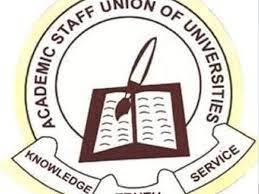The Tertiary Education Trust Fund, a Federal Government intervention agency, received a total of N1.702 trillion in education tax in nine years.
The figure, which covers between 2011 and 2019, was contained in a report prepared by the Fund and obtained by our correspondent in Abuja on Wednesday.
The agency was established following the deteriorating educational infrastructure and falling standard of education in the 1980s and early 1990s which led to agitations for reforms in the education sector.
In response to the agitations which primarily came from the Academic Staff Union of Universities, the Education Tax Fund was established in 1993 under Act No 7 as amended by Act No 40 of the 1998 as a trust fund and the 2011 TETFund Establishment Act, with the objective of using project management to improve the quality of education in Nigeria.
The main source of income available to the Fund is the two per cent education tax paid from the assessable profit of companies registered in Nigeria.
The Fund administers the tax imposed by the TETFund Act and disburses the amount to tertiary educational institutions at the federal and state levels. It also monitors the projects executed with the funds allocated to the beneficiaries.
Commenting on the report, the agency noted that, “As of 2019, a total of 223 public tertiary institutions benefited from TETFund intervention; universities-87; polytechnics-65 and colleges of education -71.”
Analysis of the taxes received during the period revealed that in 2011, N128.5bn was generated as education tax; N188.37 bn in 2012; and in 2013, the fund noted an increase in tax generated when it received N279.17 bn.
In 2014, there was a decrease in tax generated when N 189.61 bn was received.
In 2015, the Fund generated N207.43 bn worth of education tax; in 2016, there was a decrease when N130.12 bn was generated; and in 2017, it was N154.96 bn.
The Fund noted a slight increase in 2018 when N203.28 bn was generated; and N221.30 bn was generated in 2019.
Commenting on the development, the National President of the Academic Staff Union of Polytechnics, Dr Anderson Ezeibe, said, TETFund, an intervention agency, was not designed to be the main source of funding for tertiary education in the country.
He said, “The amount stated in the report covered a period of nine years and is therefore expected to have been deployed to satisfy key intervention areas like infrastructure, academic staff development, conference attendance etc. It is also expected to have been deployed to service critical committees like National Research Fund etc. as well as administrative issues.
“In all, it is difficult not to commend TETFund thus far as the agency has remained the most significant source of infrastructural development and academic staff development in tertiary institutions in the country.
“State governments and even the Federal Government have not and are not doing enough in terms of their fiscal responsibilities to these institutions.
“State-owned institutions are also beneficiaries of TETFund intervention grants. It is expected that state governments should be able to live up to their responsibilities to these institutions as proprietors and not abandon their institutions.”
Similarly, the chairperson of the Academic Staff Union of Universities, Federal University of Technology, Minna, Dr Gbolahan Bolarin, said, thing can be better at TETFUND with more sincerity.
Bolarin said, “The practice of kickbacks and what have you is zapping so much of the money. That is the reason the quality of projects under TETFund is nothing when compared to NEEDS assessment projects.
“Regarding state universities, it would be better if states can come up with additional streams of funds to support what they might be getting from TETFund. Anyway, it is all about political will to do what is right by the people.”










